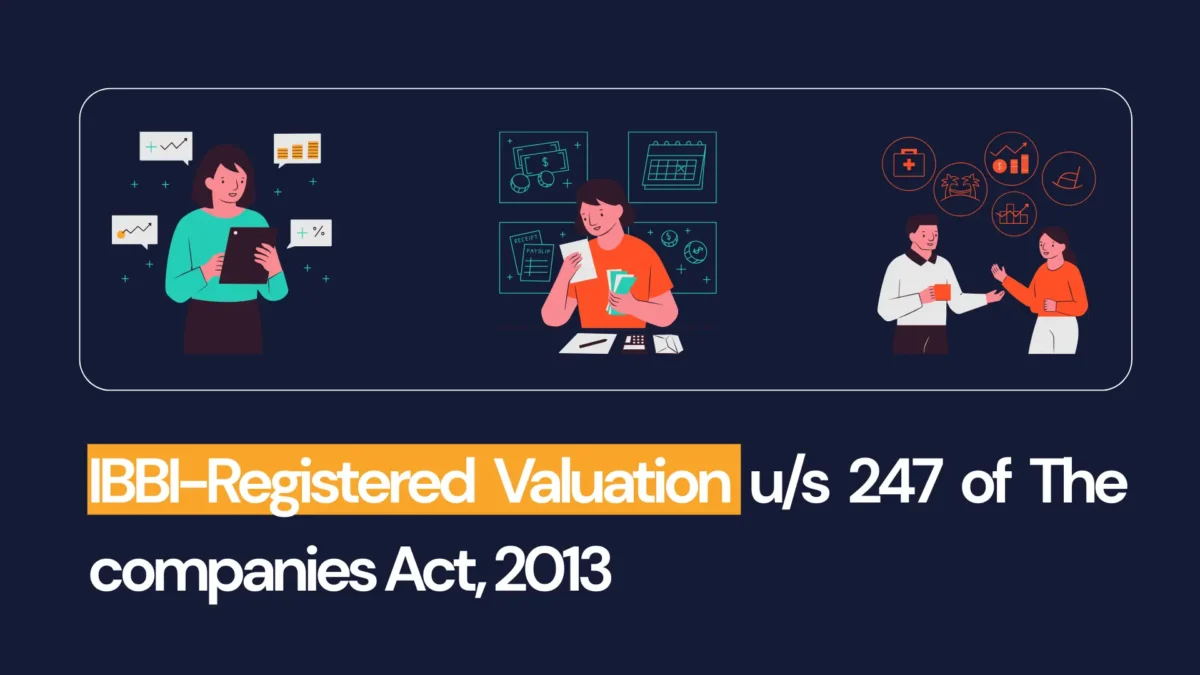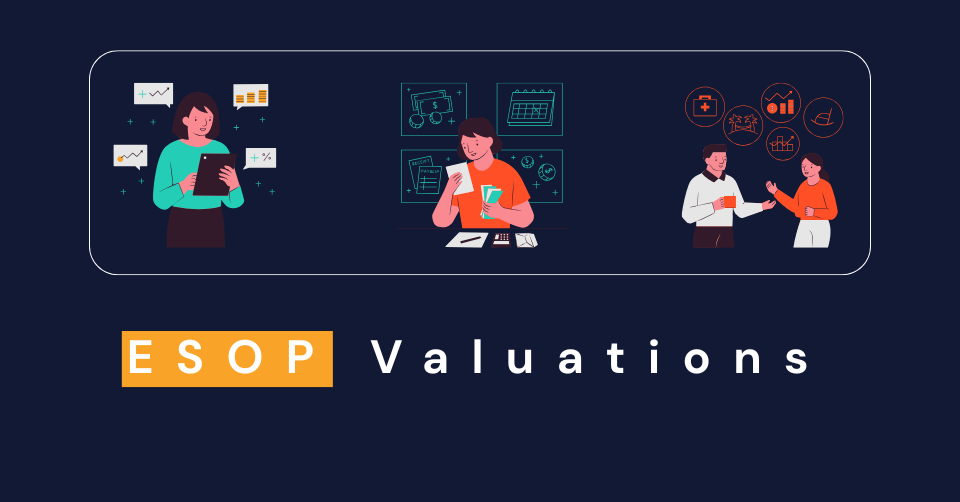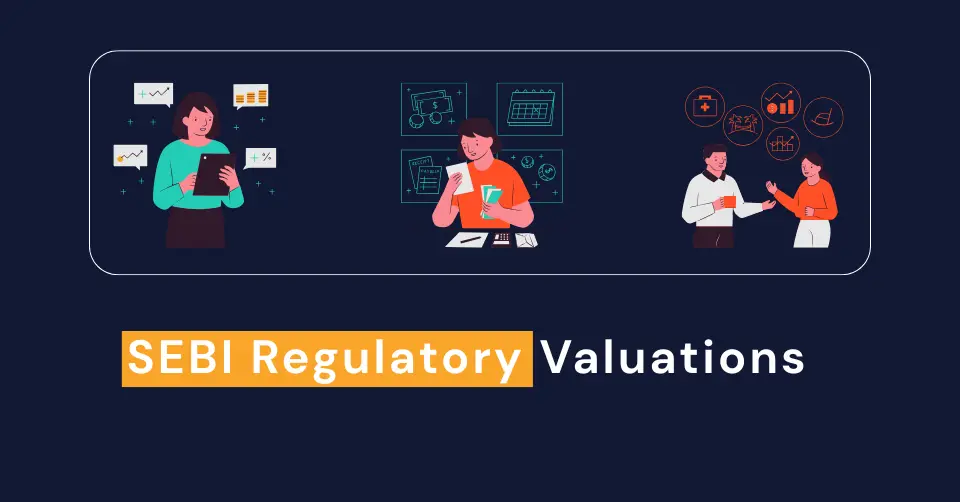
Income Tax Act (Rule 11UA) Valuations
October 9, 2025Our valuations are designed to withstand scrutiny - whether by auditors, investors, or regulatory bodies.
What is an IBBI Valuation u/s 247 of The Companies Act, 2013?
The Insolvency and Bankruptcy Board of India (IBBI) regulates registered valuers who perform valuations under section 247 of the Companies Act, 2013 and the Insolvency and Bankruptcy Code, 2016 (IBC).
An IBBI Valuation is, therefore, a valuation carried out by a qualified professional registered with IBBI, ensuring that the process meets defined ethical and professional standards.
In India, valuation is not merely a financial estimation exercise - it is a legally recognized process that demands independence, competence, and adherence to statutory valuation rules.
Such valuations are required for:
-
Mergers, demergers, or restructuring under the Companies Act
-
IBC resolution processes for determining liquidation value or fair value
-
Regulatory filings under SEBI, FEMA, or Income Tax Act
-
Equity issuances or share transfers involving fair value determination
In short: IBBI valuations provide legal validity to financial assessments - converting opinion into authority.
Why IBBI Valuations Matter ?
Valuation plays a critical role in every corporate and financial transaction. But when it carries a regulatory or legal impact, the valuation must be backed by a registered professional.
Here’s why IBBI-certified valuations matter:
+ Regulatory Recognition
Reports issued by non-registered individuals may not be accepted under law for specific filings or disputes.
IBBI-certified valuations are legally recognized across corporate, tax, and insolvency matters.
+ Credibility and Transparency
Having an independent, government-registered valuer ensures that the process is unbiased and follows professional standards — boosting the confidence of auditors, investors, and regulators.
+ Uniformity and Consistency
The IBBI framework brings consistency in methodology and reporting — making valuations more comparable and reliable across the ecosystem.
+ Accountability and Oversight
Registered Valuers operate under the supervision of RVOs (Registered Valuer Organizations) and IBBI, ensuring ethical conduct, peer review, and continuous professional development.
Equirium Analytics bridges the gap between technical precision and regulatory compliance under section 247 - ensuring your valuation is not only right but recognizably right.
When Do You Need an IBBI Valuation?
A startup or establish businesses require an IBBI-certified valuation in any of the following scenarios:
-
Mergers, Demergers, or Amalgamations under Sections 230-232 of the Companies Act.
-
Allotment or Transfer of Shares involving unrelated parties or investors.
-
Fair Value / Liquidation Value Determination during Insolvency Resolution (IBC).
-
Valuation under FEMA or FDI regulations for inbound or outbound investments.
-
Purchase, Sale, or Investment in Unlisted Companies.
-
Regulatory or Audit Reporting under IND AS.
-
Transaction involving ESOPs or convertible instruments.
Each of these transactions carries unique valuation objectives, but all share one constant: compliance and defensibility.
Our Approach to IBBI Valuation
At Equirium Analytics, our methodology aligns with IBBI Valuation Standards, ICAI guidelines, and global best practices.
Our approach is built on three principles — Integrity, Independence, and Insight.
Our Step-by-Step Process:
1. Understanding the Context
Every valuation begins with clarity — defining the purpose, regulatory reference, and stakeholders involved.
This ensures the right methodology is chosen from the outset.
2. Data Collection and Review
We analyze corporate documents, shareholding structures, financial statements, and forecasts.
We also assess industry trends, comparable companies, and transaction precedents for context.
3. Methodology Selection
Depending on the objective and nature of the business, we apply one or more of the following:
-
Income Approach (DCF Method) — for growth-oriented or future-focused entities
-
Market Approach (Comparable Multiples Method) — for benchmarking against peers
-
Asset Approach (NAV Method) — for asset-heavy or early-stage companies
4. Valuation Computation and Sensitivity Analysis
We compute the fair value using sound financial models, supported by scenario and sensitivity analyses to assess valuation robustness.
5. Report Preparation and Review
A detailed report is drafted, reviewed by our senior team, and finalized by an IBBI Registered Valuer.
Our reports are designed to be audit-defensible, regulator-ready, and professionally formatted.
Precision in numbers, clarity in communication, and integrity in approach — that’s the Equirium standard.
Why Choose Equirium Analytics...!!
Choosing the right IBBI Registered valuer is as critical as the valuation itself.
At Equirium Analytics, we combine technical excellence to derive valuation, deep regulatory understanding of all applicable laws to particular valuation, and client empathy to deliver valuations that stand up to scrutiny.
Our Key Strengths
-
Registered Valuers under IBBI (Securities & Financial Assets).
-
Versatile team having experience and understanding of business dynamics across various industries.
-
Extensive experience across startups, listed companies, and insolvency cases.
-
Robust financial modeling & documentation practices.
-
Multi-regulatory expertise covering Companies Act, FEMA, SEBI & IBC.
-
Transparent communication with clear explanations for every assumption.
-
Quick turnaround without compromising quality.
Equirium Analytics is trusted by founders, auditors, legal advisors, and insolvency professionals alike for our ability to blend valuation science with regulatory sense.





